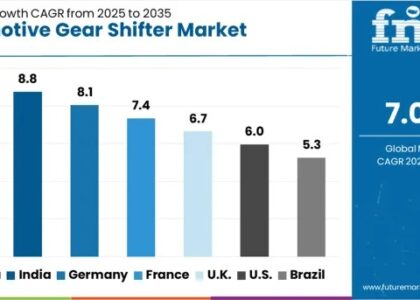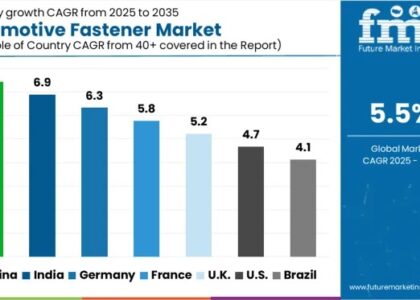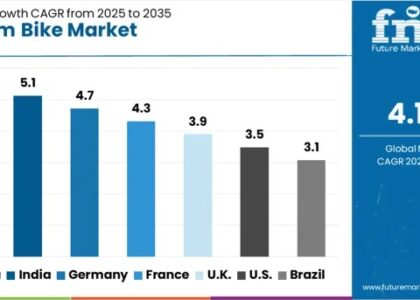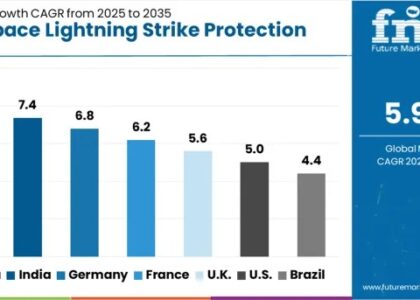The food waste management sector (Mercado de gestión de residuos alimentarios) is poised for significant growth, with an estimated market value of US$ 70.0 billion in 2023, projected to reach US$ 121.8 billion by 2033, marking a robust CAGR of 5.7% over the forecast period.As food waste continues to escalate, spurred by uneaten or leftover food, the demand for effective food waste management solutions is on the rise. Increased consumer awareness regarding food wastage, coupled with government initiatives, is driving the adoption of food waste management practices. Industries such as animal feed, fertilizer, and renewable energy are driving market expansion by repurposing food waste into valuable resources.
What Measure does Government take to Reduce Food Waste?
Around the world, numerous nations are actively tackling the issue of food waste through various initiatives. Food wastage poses a significant challenge with far-reaching impacts on the environment, society, and global economies. Consequently, it has become a focal point for many countries. Despite this attention, substantial quantities of food continue to be wasted, while others face food shortages.
Governments worldwide are taking proactive measures to address this issue, launching awareness campaigns and programs aimed at reducing food wastage. For instance, the U.K. government has introduced the Love Food Hate Waste initiative, while Denmark has implemented the Stop Wasting Food program in recent years. Additionally, the United Nations has prioritized raising awareness among individuals to minimize food wastage and support initiatives like the Zero Hunger Challenge Program.
Key Takeaways:
- The food waste management market is expected to have a valuation of US$ 121.8 billion by 2033.
- The global market is likely to register a CAGR of 5.7% during the forecast period.
- The United States food waste management market is anticipated to register a CAGR of 5.9% through 2033.
- With a CAGR of 6.1%, the United Kingdom market is significantly estimated to uplift during the forecast period.
- China’s market is projected to register a CAGR of 7.8% over the forecast period.
Who is winning?
The market is fragmented in nature. The prominent players provide services to the customers by adopting advanced technology. Moreover, they are focused on innovating products to collect and recycle food waste. The manufacturers are using various technologies such as automated garbage pickups, enzyme-based food management systems, and sensor-based waste management.
Recent Developments in the Food Waste Management Market:
Prominent vendors are making innovative technologies to reduce food waste. They are adopting several methods to enhance the quality and extend the shelf-life of food during the forecast period. For example, top manufacturing companies adopt clean-label packaging to provide excellent food safety by reducing food wastage.
Gain full access to the Food Waste Management Industry report, featuring comprehensive Market Forecast, Company Share Analysis, Competition Intelligence, DROT Analysis, Market Dynamics and Challenges, and Strategic Growth Initiatives.
Food Waste Management Market by Category
By Service:
- Prevention
- Collection
- Transfer
- Recycling
- Landfill
By Waste Type:
- Food Production Waste
- Agri Produce Waste
- Poultry, Meat, and Seafood Waste
- Food Processing Waste
- Agri Produce Processing Waste
- Poultry, Meat, and Seafood Processing Waste
- Dairy Food Processing Waste
- Other Food Processing Waste
- Distribution & Supply Chain Waste
- Retail Waste
- Consumption Waste
- Household Food Waste
- Food Services, Hospitality, & Institutional Waste
By End User:
- Animal Feed
- Fertilizer
- Renewable Energy & Biofuels
- Others
By Region:
- North America
- Latin America
- Europe
- South Asia & Pacific
- East Asia
- Middle East & Africa (MEA)
About Future Market Insights (FMI)
Future Market Insights, Inc. (ESOMAR certified, recipient of the Stevie Award, and a member of the Greater New York Chamber of Commerce) offers profound insights into the driving factors that are boosting demand in the market. FMI stands as the leading global provider of market intelligence, advisory services, consulting, and events for the Packaging, Food and Beverage, Consumer Technology, Healthcare, Industrial, and Chemicals markets. With a vast team of over 400 analysts worldwide, FMI provides global, regional, and local expertise on diverse domains and industry trends across more than 110 countries.
Contact Us:
Future Market Insights Inc.
Christiana Corporate, 200 Continental Drive,
Suite 401, Newark, Delaware – 19713, USA
T: +1-845-579-5705
For Sales Enquiries: sales@futuremarketinsights.com
Website: https://www.futuremarketinsights.com
LinkedIn| Twitter| Blogs | YouTube






